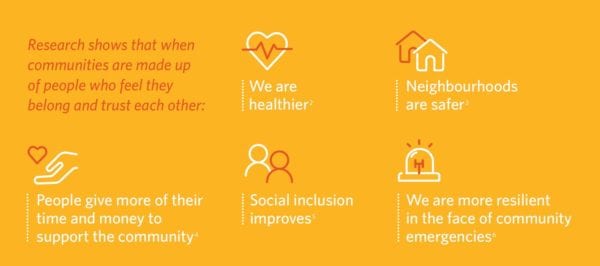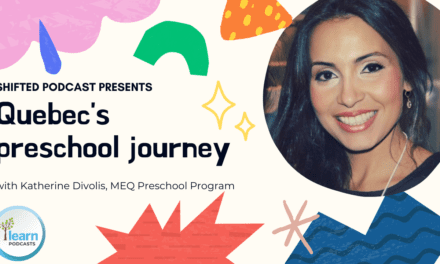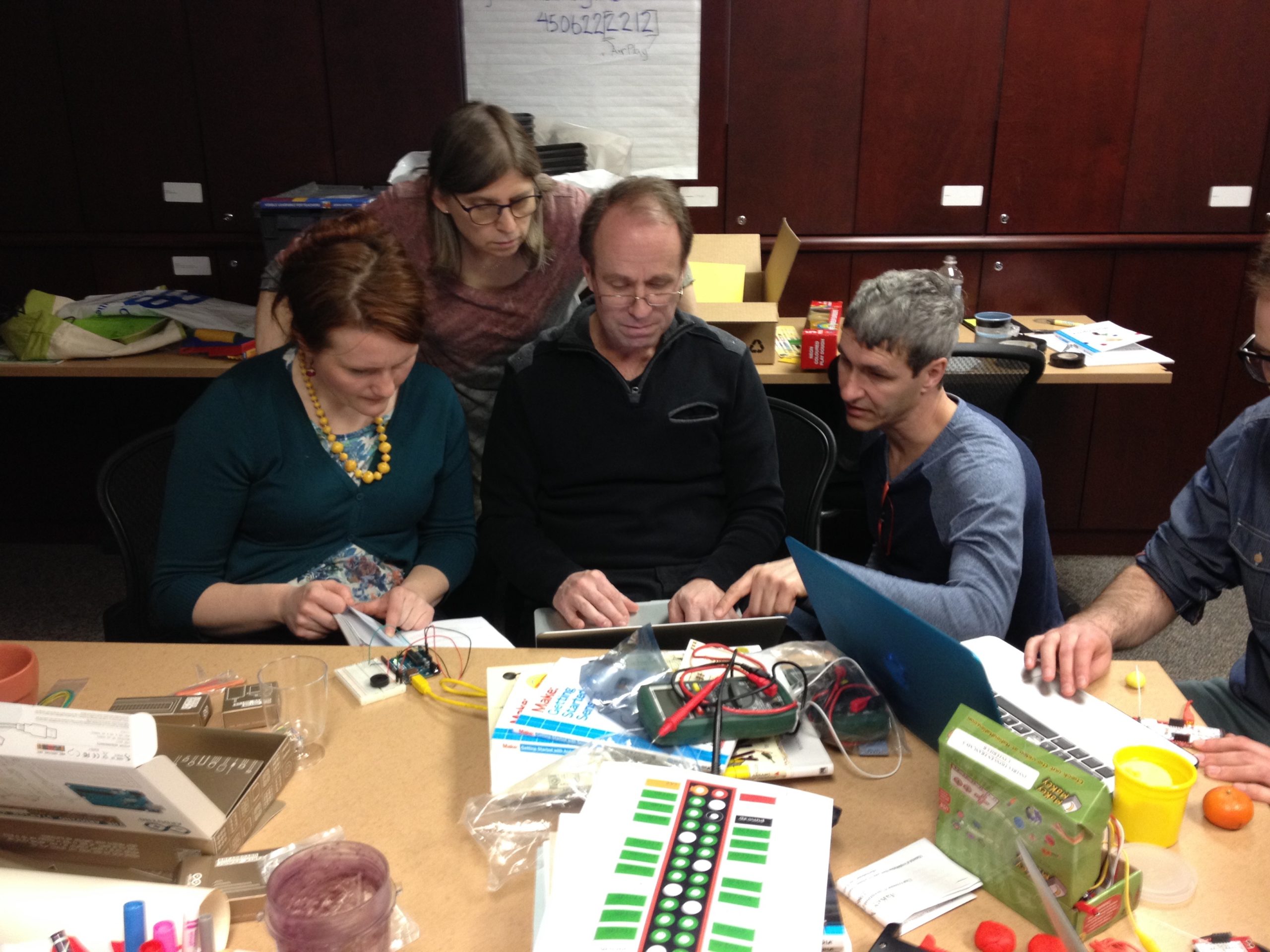Whatever the problem, community is the answer.
Margaret Wheatley
Do English-speakers have a place in Quebec society? Do we ‘fit in’? Are we accepted by our fellow Quebecers? These are questions that the English-speaking community of Quebec have wrestled with for decades. Our thoughts and feelings about belonging in Quebec society vary tremendously – from feelings of anger and pride expressed by seniors who lived through the Quiet Revolution, to feelings of confusion from increasingly bilingual youth who often come from homes that transcend political and linguistic divides. It is historically complex and remains the subject of much contention today.
In 2019, the Secretariat for Relations with English-Speaking Quebecers (SRESQ) conducted consultations with English-speakers and representatives across the province. Their findings were unsurprising: most English speakers (still) do not feel a strong sense of belonging to the province. To better understand why that is, and to try and bolster the community’s sense of belonging, the SRESQ awarded project funding to six community based organizations, including LEARN.
When project planning at LEARN began to intensify over the summer, we had already been living through the global pandemic for four months. Health and safety measures had already taken a significant toll on social networks: schools were shut down, playgrounds were empty, many people lost their jobs while others began working from home on a full-time basis. Moreover, friends and families began to increasingly rely on videoconferencing technology to stay connected, and already vulnerable seniors were more isolated than ever. Even now, the pandemic threatens to push us further and further apart but our sense of belonging can help us to persevere. A sense of belonging to a people and to a place – to our home – can help to inoculate us against intense feelings of despair and increase our likelihood to comply with health and safety measures. A ‘sense of belonging’ is far from an abstract discussion point; it is a human need and its impact on our behaviour is profound.

Community Foundations of Canada, Vital Signs (2017)
The series of Vital Signs reports penned by the Community Foundations of Canada clearly illustrate that when we have a high sense of belonging to a place or to a group of people, we are more likely to engage in positive acts of citizenship. We are more likely to take care of one another and the communal spaces we share. There are also specific types of activities we can engage in to enhance our sense of belonging, including participating in arts and culture activities (creating or attending things like plays, concerts, municipal events), engaging in acts of community service (volunteering, engaging in random acts of kindness) and something as simple as communicating regularly with our neighbours.
Knowing all of this, we used the project funding as an opportunity to develop three asynchronous learning opportunities that could empower students and teachers to explore what it means to belong in Quebec society by (1) making art, (2) telling stories and (3) taking positive actions within their communities. Since the project launched in September, over 50 classrooms in 20 schools have registered to participate.
The works of art, narratives and acts of service that emerge from this project have the potential to humanize and unite us, to bring otherwise untold lived experiences to the surface and can remind us of our capacity to make a positive difference. And that’s something to be excited about.
Arts and culture make communities better places to live. They help define who we are, how we relate to one another and how we feel about ourselves and our communities
Community Foundations of Canada, Vital Signs, Arts & Belonging (2017)
While the “I Belong!” project is exclusively available to schools participating in the Community Learning Centre Initiative, schools across the province can still get involved:
- Consider using funds from ELAN’s ArtistsInspire grant to participate in options 1 or 2 of the I Belong! Project when registration opens up again in January;
- Make use of the “I Belong” question guide to engage in critical discussions with students;
- Take action within your community – acts of community service contribute to a greater sense of belonging;
- Participate in arts and culture activities – it is good for the soul and also contributes to an improved sense of belonging.
Living through a pandemic can feel isolating and disempowering. One thing we can do for ourselves, and for each other, is focus on bolstering our connections to one another and to this place we call ‘home.’ In doing so, we may emerge from this with a greater sense of belonging than we had before, and all the benefits that come with it.





